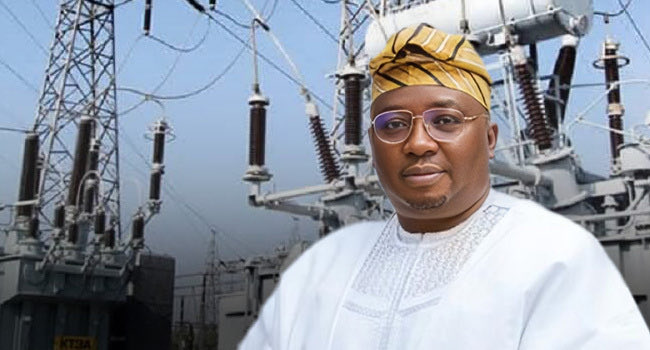
Nigeria in Talks with China for $2 Billion Loan to Build National Super Grid — Minister Adelabu

Nigeria has opened negotiations with China’s Export-Import Bank for a $2 billion loan to finance the construction of a national “super grid”, in what officials describe as a transformative step toward stabilizing the country’s power supply.
Minister of Power, Adebayo Adelabu, confirmed the talks during a briefing on Monday, stating that the proposed project will serve as the backbone of Nigeria’s future electricity infrastructure.
According to him, the new grid is designed to enhance transmission capacity, reduce outages, and provide reliable energy to support industries and households nationwide.
“This super grid project is not just about power; it’s about unlocking economic growth,” Adelabu said, emphasizing that the current transmission network cannot handle the increasing energy generation from new plants across the country.
The proposed loan, to be provided by China Exim Bank, is part of a broader partnership under Nigeria’s ongoing engagement with Chinese institutions for critical infrastructure development. The super grid, once completed, will reportedly link the country’s existing 330kV and 132kV lines to a modern 765kV high-voltage system, enabling more efficient transmission of electricity across regions.
Nigeria’s power sector, long hampered by inefficiency, poor maintenance, and vandalism, has remained one of the biggest obstacles to industrial growth. Despite having a generation capacity exceeding 13,000 megawatts, less than 5,000 megawatts often reach consumers due to transmission bottlenecks.
The new grid project, according to experts, could be a game-changer if properly executed. It aims to reduce the recurrent collapse of the national grid, improve reliability, and attract both local and foreign investors who have long cited erratic electricity as a major deterrent to doing business in Africa’s largest economy.
However, the announcement has also sparked mixed public reactions online. Some Nigerians praised the initiative as a bold step toward modernization, while others expressed skepticism over the sustainability of borrowing from China, citing the country’s growing external debt profile. On social media platform X, one user wrote, “We’ve borrowed for roads, rails, and refineries—now for power again. When will these loans start lighting our bulbs?”
Adelabu, however, insists that the project’s benefits will outweigh the risks, stressing that the government is committed to ensuring transparent financing and execution. “We cannot grow without reliable electricity. This project will define the future of Nigeria’s energy sector,” he added.
If finalized, the $2 billion super grid deal would mark one of the largest energy infrastructure partnerships between Nigeria and China, signaling a renewed push by President Tinubu’s administration to fix the nation’s chronic power problems once and for all.


